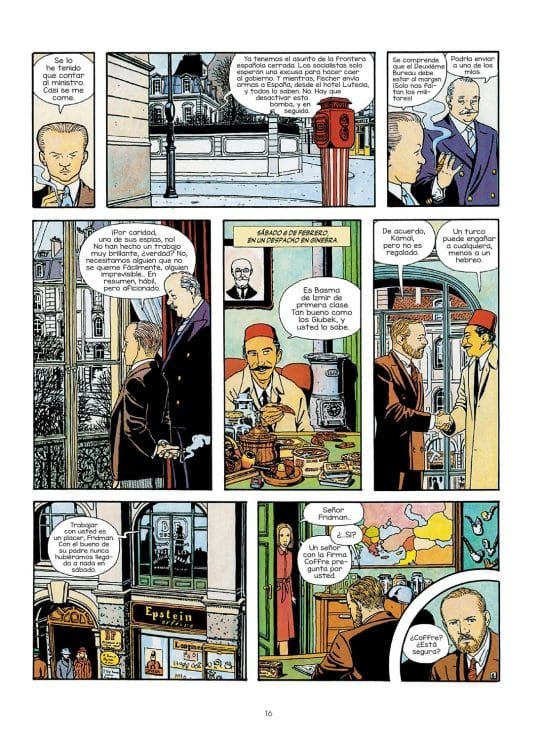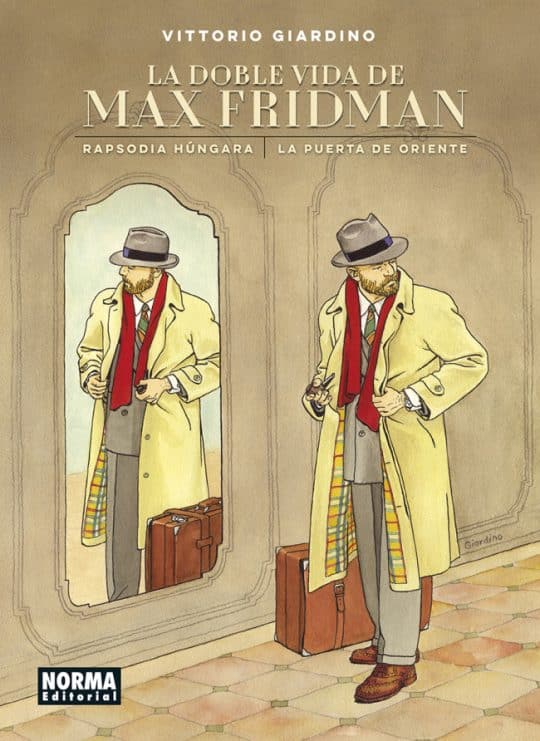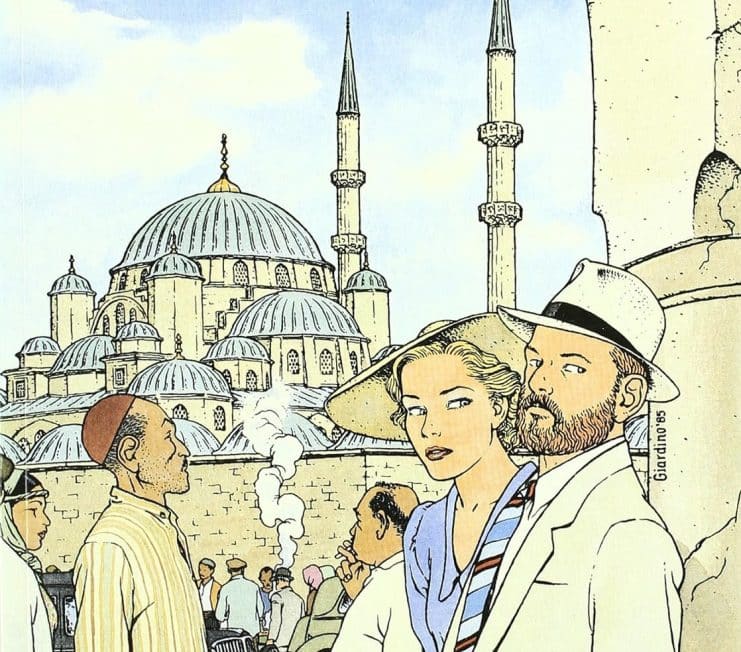Norma Editorial presents The Double Life of Max Fridman: Hungarian Rhapsody and The Gate to the East, the spy story created by Victor Garden
Victor Garden is a point of reference in European comics of the 80s and thanks to Editorial Standard Now we can have the first two adventures of one of his most interesting works, although perhaps not one of the best known. These come to us in a complete volume under the title of The Double Life of Max Fridman: Hungarian Rhapsody and The Gate to the East.
A classic spy story
An interesting and charismatic protagonist, beautiful women and exotic places. If we ignore the fact that we are talking about French espionage and frame the action in the 30s, anyone would think that we are facing a story of James Bondbut nothing could be further from the truth.
Massimo Fridman He is a spy of Jewish origin who works for the French secret services under the guise of a businessman who travels around Europe for work. Fridman will be forced to come out of retirement (at that time, being a forty-year-old like him meant already having one foot in the grave) to get involved in a murky affair that will force him to move a lot and get blood on his hands. Neither a patriot nor an idealist, Max is clearly a man forced into action exclusively by circumstances. Self-preservation will always be your priority.
The two stories that we will find here are not distinguished by how accessible they can be to the reader. We are faced with dense plots where on each page we can find a multitude of information that forces the reader to make an effort to follow the action without getting lost in a mass of data, and probably to be a little aware of the geopolitics prevailing in that country. those times to adequately understand the general context of the plots that develop here.
And the work of preparation and documentation behind these stories is remarkable. In the interwar era in which the first story takes place, we will learn all the details of the fertile ground that is being prepared (largely alluding to the Spanish Civil War) and that will lead to the outbreak of the Second World War. In that swamp of intrigue and secrets, Max will have to navigate against the current to achieve his goals.
But beyond that, what stands out most in this volume is the pleasure of classic espionage. Because of the era in which the plot takes place and the absence of fantasy or science fiction elements, we are faced with stories in which it is precisely the spy’s ability and his natural aptitudes that give him an advantage over his rivals. That competence of the small and that technology of the rudimentary is what Giardino portrays perfectly, without losing the usual atmosphere of false romanticism, lies, constant betrayal and suspicion that cannot be missing in these stories…

Clear luxury line
Giardino has in this work what is probably his best work. Its precise and effective line (a line that is outlined as we turn the pages) could be defined as minimalist in that the author limits himself to inserting in each vignette only what provides information to the reader, whether it refers to the action that has taken place or the context in which we are moving.
This also transfers to the characters, characterizing them with the minimum elements necessary to make them not only recognizable and differentiable but also to have their own entity and a certain physical identity. And despite all this minimalism, the preciousness with which the Italian author infuses each page is incredible, something that is amply repaid by the mostly flat color palette (with slight volumetric effects here and there) used.
As for the edition, it must be said that this one is wonderful. Volume presented by Editorial Standard It is presented in hardback format without dust jacket with a page size of 19 x 26 cm, and it must be said that perhaps the dimensions of the original albums would have been more precise (even if they would have also raised the price). The volume contains 232 pages in color and includes, in addition to the translation of the two main stories and the respective introductions to each written by the author, a large final section with a lot of extra material. The suggested retail price is €35 and went on sale in July 2024.

The Double Life of Max Fridman: Hungarian Rhapsody and The Gate to the East
FRIDMAN’S FIRST TWO ADVENTURES IN A COMPLETE …
Officially, Max Fridman is the harmless director of a small tobacco company operating in Geneva. Unofficially, he is an agent linked to the “Firm”, that is, the French espionage services, who force him to participate in secret missions as he travels through a Europe torn apart by totalitarianism and on the brink of World War II.
This volume brings together the first two albums that the Italian master Vittorio Giardino (They Shall Not Pass!, Jonas Fink) dedicated to Max Fridman, his most emblematic character. Rapsodia Ungherese and La Porta dell’Est are two essential masterpieces for understanding the evolution of European comics in the 80s in its most adult register.
Authors: Victor Garden
